© Copyright: 2021 – 2024 IAS – the International AIDS Society
Email: info@ias2021.org

Rapporteurs have the important task of objectively recording the proceedings and groundbreaking presentations at IAS 2021. Throughout the conference, an international team of rapporteurs will report on key conference highlights across all tracks. All summaries will be published on this page during the week. A rapporteur session will be held immediately before the closing session on Wednesday, 21 July 2021. This session will synthesize the presentations made during the week, focusing on critical issues addressed, important results presented and key recommendations put forward.
Lead: Mayte Coiras, Spain
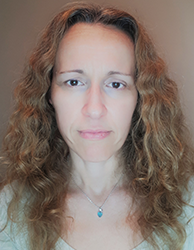 Mayte Coiras obtained her PharmD and PhD in immunology and virology at the Universidad Complutense de Madrid, Spain. Her postdoctoral training was at the Respiratory Virus Unit in the National Center of Microbiology, Instituto de Salud Carlos III (ISCIII, Madrid). Since 2003, she has worked at the AIDS Immunopathology unit (ISCIII) on several research lines related to the study of the mechanisms for latency and reactivation of HIV reservoir. These are mainly involved in the formation and maintenance of the viral reservoir, as well as in the discovery of new potential strategies to reduce the reservoir size by interfering with its replenishment.
Mayte Coiras obtained her PharmD and PhD in immunology and virology at the Universidad Complutense de Madrid, Spain. Her postdoctoral training was at the Respiratory Virus Unit in the National Center of Microbiology, Instituto de Salud Carlos III (ISCIII, Madrid). Since 2003, she has worked at the AIDS Immunopathology unit (ISCIII) on several research lines related to the study of the mechanisms for latency and reactivation of HIV reservoir. These are mainly involved in the formation and maintenance of the viral reservoir, as well as in the discovery of new potential strategies to reduce the reservoir size by interfering with its replenishment.
Jennifer Zerbato, Australia
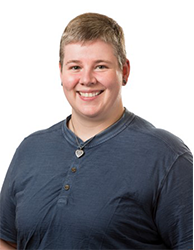 Dr Jenn Zerbato is a postdoctoral research fellow in the lab of Professor Sharon Lewin at the Peter Doherty Institute for Infection and Immunity, Australia. She completed her PhD in 2016 at the University of Pittsburgh, US, where she studied the establishment and reversal of HIV latency in CD4+ T cell subsets. Since joining the lab of Professor Lewin, Dr Zerbato has been focusing on ways to measure the latent reservoir in vivo and ex vivo and identify more accurate ways to measure latency reversal. She has also studied HIV infection in the liver during HIV/HBV co-infection on and off antiretroviral therapy.
Dr Jenn Zerbato is a postdoctoral research fellow in the lab of Professor Sharon Lewin at the Peter Doherty Institute for Infection and Immunity, Australia. She completed her PhD in 2016 at the University of Pittsburgh, US, where she studied the establishment and reversal of HIV latency in CD4+ T cell subsets. Since joining the lab of Professor Lewin, Dr Zerbato has been focusing on ways to measure the latent reservoir in vivo and ex vivo and identify more accurate ways to measure latency reversal. She has also studied HIV infection in the liver during HIV/HBV co-infection on and off antiretroviral therapy.
Marta Massanella, Spain
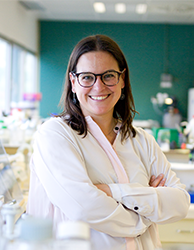 Dr Marta Massanella is a research scientist at the AIDS Research Institute IrsiCaixa (Spain), where she leads the Translational Research on Immunology and Ageing group. During her PhD, she characterized the immunodiscordant response to ART in HIV-treated individuals and she was involved in several ART-intensification studies. As a postdoctoral fellow, Dr Massanella carried out several HIV reservoir studies in adults and the paediatric population. Currently, her main research focus is to study the accentuated immunoageing of ART-treated people living with HIV and the impact of age on the HIV reservoir. During the COVID-19 pandemic, she has been involved in various COVID-19 cohort studies to characterize the immune responses of older people after SARS-CoV-2 vaccination and to determine the origin of persistent symptomatology in people who suffer from long COVID.
Dr Marta Massanella is a research scientist at the AIDS Research Institute IrsiCaixa (Spain), where she leads the Translational Research on Immunology and Ageing group. During her PhD, she characterized the immunodiscordant response to ART in HIV-treated individuals and she was involved in several ART-intensification studies. As a postdoctoral fellow, Dr Massanella carried out several HIV reservoir studies in adults and the paediatric population. Currently, her main research focus is to study the accentuated immunoageing of ART-treated people living with HIV and the impact of age on the HIV reservoir. During the COVID-19 pandemic, she has been involved in various COVID-19 cohort studies to characterize the immune responses of older people after SARS-CoV-2 vaccination and to determine the origin of persistent symptomatology in people who suffer from long COVID.
Philippe Rascle, United States
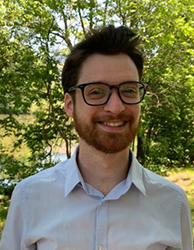 Philippe Rascle completed his PhD at Université de Paris, where he worked with Professor Michaela Müller-Trutwin in the HIV, Inflammation and Persistence lab at the Institut Pasteur, Paris. During his PhD, his work focused on the mechanism of protection that NK cells provide in non-human primate SIV natural hosts, specifically African green monkeys. Currently, he’s working with R Keith Reeves as a postdoctoral fellow in the Center for Virology and Vaccine Research at Beth Israel Deaconess Medical Center. He continues to focus his research on NK cells, particularly their potential role in control of SIV/HIV infection.
Philippe Rascle completed his PhD at Université de Paris, where he worked with Professor Michaela Müller-Trutwin in the HIV, Inflammation and Persistence lab at the Institut Pasteur, Paris. During his PhD, his work focused on the mechanism of protection that NK cells provide in non-human primate SIV natural hosts, specifically African green monkeys. Currently, he’s working with R Keith Reeves as a postdoctoral fellow in the Center for Virology and Vaccine Research at Beth Israel Deaconess Medical Center. He continues to focus his research on NK cells, particularly their potential role in control of SIV/HIV infection.
Lead: Christoph D Spinner, Germany
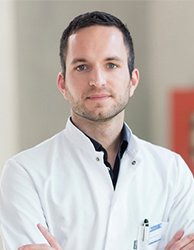 Christoph Spinner is a consultant physician and Chief Medical Information Officer (CMIO) at University Hospital Rechts der Isar. He attended medical school at Albert-Ludwigs-University Freiburg, Germany, with an internship at Zurich University Hospital, Switzerland, and Groote Schuur Hospital, South Africa. Currently, he leads the Infectious Diseases Unit at University Hospital Rechts der Isar, Munich, Germany, where he cares for patients. As CMIO, he is involved in strategic planning and organizational translation of the hospital’s IT-supported medical processes. He is involved in SARS-CoV-2 management, including in the severely hit area of Munich. He coordinates SARS-CoV-2 therapy and prevention trials. Dr Spinner’s research focuses on diagnostic and treatment aspects, such as novel treatment strategies of infectious diseases, including prevention of HIV, sexually transmitted infections in general and COVID-19, as well as digitalization in healthcare.
Christoph Spinner is a consultant physician and Chief Medical Information Officer (CMIO) at University Hospital Rechts der Isar. He attended medical school at Albert-Ludwigs-University Freiburg, Germany, with an internship at Zurich University Hospital, Switzerland, and Groote Schuur Hospital, South Africa. Currently, he leads the Infectious Diseases Unit at University Hospital Rechts der Isar, Munich, Germany, where he cares for patients. As CMIO, he is involved in strategic planning and organizational translation of the hospital’s IT-supported medical processes. He is involved in SARS-CoV-2 management, including in the severely hit area of Munich. He coordinates SARS-CoV-2 therapy and prevention trials. Dr Spinner’s research focuses on diagnostic and treatment aspects, such as novel treatment strategies of infectious diseases, including prevention of HIV, sexually transmitted infections in general and COVID-19, as well as digitalization in healthcare.
Jillian Lau, Australia
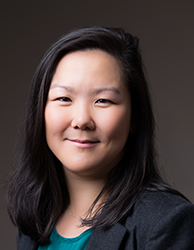 Dr Jillian Lau is an infectious diseases physician at the Alfred Hospital and Monash Health in Melbourne, Australia. She recently completed a PhD focused on analytical treatment interruptions in HIV cure clinical trials and is involved in Australian trials in HIV treatment, prevention and cure. Her research interests are in the field of HIV cure, including clinical trials of immune checkpoint inhibitors as an intervention to target the HIV reservoir, and strategies to improve stakeholder (community and clinician) engagement in HIV cure research.
Dr Jillian Lau is an infectious diseases physician at the Alfred Hospital and Monash Health in Melbourne, Australia. She recently completed a PhD focused on analytical treatment interruptions in HIV cure clinical trials and is involved in Australian trials in HIV treatment, prevention and cure. Her research interests are in the field of HIV cure, including clinical trials of immune checkpoint inhibitors as an intervention to target the HIV reservoir, and strategies to improve stakeholder (community and clinician) engagement in HIV cure research.
Maria Elena Ceballos, Chile
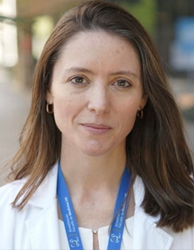 Maria Elena Ceballos is an internal medicine and infectious disease physician. She is an Assistant Professor at Pontificia Universidad Católica de Chile and the head of Postgraduate Residency in Infectious Diseases. Prof Ceballos is the head of the HIV Committee of the Chilean Society of Infectious Diseases and advises the Ministry of Health on Chilean HIV guidelines. Her research interests are in HIV medicine, including comorbidities, coinfections, treatment and prevention. Some of her last publications have been on HIV-associated neurocognitive disorders, bone mineral density, COVID-19 and HIV and drug resistance mutations in proviral DNA of patients with low level of viremia.
Maria Elena Ceballos is an internal medicine and infectious disease physician. She is an Assistant Professor at Pontificia Universidad Católica de Chile and the head of Postgraduate Residency in Infectious Diseases. Prof Ceballos is the head of the HIV Committee of the Chilean Society of Infectious Diseases and advises the Ministry of Health on Chilean HIV guidelines. Her research interests are in HIV medicine, including comorbidities, coinfections, treatment and prevention. Some of her last publications have been on HIV-associated neurocognitive disorders, bone mineral density, COVID-19 and HIV and drug resistance mutations in proviral DNA of patients with low level of viremia.
Wong Chen Seong, Singapore
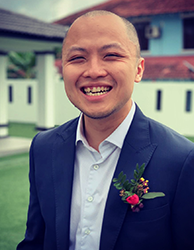 Dr Wong Chen Seong is a consultant physician with the Department of Infectious Diseases, Tan Tock Seng Hospital, and the National Centre for Infectious Diseases, where he is the Head of the Clinical HIV Programme and the Deputy Director of the National HIV Programme. His clinical and research interests are in HIV medicine, including HIV treatment and prevention, and the socio-behavioural determinants of HIV and other STIs. He has published in the fields of clinical HIV, pre-exposure prophylaxis and socio-behavioural and implementation science as it applies to HIV. He is actively involved in medical education and training, and is the Programme Director for the National Healthcare Group Infectious Diseases Residency Programme, in addition to being Adjunct Assistant Professor with the Yong Loo Lin School of Medicine, National University of Singapore.
Dr Wong Chen Seong is a consultant physician with the Department of Infectious Diseases, Tan Tock Seng Hospital, and the National Centre for Infectious Diseases, where he is the Head of the Clinical HIV Programme and the Deputy Director of the National HIV Programme. His clinical and research interests are in HIV medicine, including HIV treatment and prevention, and the socio-behavioural determinants of HIV and other STIs. He has published in the fields of clinical HIV, pre-exposure prophylaxis and socio-behavioural and implementation science as it applies to HIV. He is actively involved in medical education and training, and is the Programme Director for the National Healthcare Group Infectious Diseases Residency Programme, in addition to being Adjunct Assistant Professor with the Yong Loo Lin School of Medicine, National University of Singapore.
Lead: Andrew Mujugira, Uganda
 Andrew Mujugira, MBChB, MSc, MPH, PhD, MACE, is a clinical epidemiologist and senior research scientist at the Infectious Diseases Institute, Makerere University, Uganda. He has 12 years of experience with oral pre-exposure prophylaxis (PrEP) efficacy trials, demonstration projects and implementation science and safety studies. His current research is funded by the National Institutes of Health and focuses on developing methods to build self-efficacy and empowerment, increase antiretroviral (ARV) adherence and reduce sexual risk behaviours among key populations in Uganda through the use of evidence-based self-controlled HIV prevention tools (HIV self-testing, STI self-sampling, ARV treatment and PrEP).
Andrew Mujugira, MBChB, MSc, MPH, PhD, MACE, is a clinical epidemiologist and senior research scientist at the Infectious Diseases Institute, Makerere University, Uganda. He has 12 years of experience with oral pre-exposure prophylaxis (PrEP) efficacy trials, demonstration projects and implementation science and safety studies. His current research is funded by the National Institutes of Health and focuses on developing methods to build self-efficacy and empowerment, increase antiretroviral (ARV) adherence and reduce sexual risk behaviours among key populations in Uganda through the use of evidence-based self-controlled HIV prevention tools (HIV self-testing, STI self-sampling, ARV treatment and PrEP).
Elizabeth Irungu, Kenya
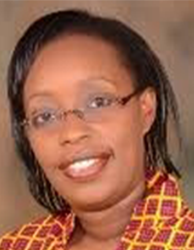 Dr Elizabeth Irungu has worked for more than 10 years in the field of HIV prevention research, primarily among HIV-serodiscordant couples and young women. She was lead clinician for the Partners PrEP Study and the Partners Demonstration Project in Thika, Kenya. She currently leads the Partners Scale-Up Project, an implementation science project that aims to catalyse scale up of oral PrEP for HIV-serodiscordant couples in public HIV care clinics in Kenya; it is done in collaboration with the International Clinical Research Centre at the University of Washington. She works closely with the Kenya National AIDS and STI Control Programme and is a member of the PrEP Technical Working Group.
Dr Elizabeth Irungu has worked for more than 10 years in the field of HIV prevention research, primarily among HIV-serodiscordant couples and young women. She was lead clinician for the Partners PrEP Study and the Partners Demonstration Project in Thika, Kenya. She currently leads the Partners Scale-Up Project, an implementation science project that aims to catalyse scale up of oral PrEP for HIV-serodiscordant couples in public HIV care clinics in Kenya; it is done in collaboration with the International Clinical Research Centre at the University of Washington. She works closely with the Kenya National AIDS and STI Control Programme and is a member of the PrEP Technical Working Group.
Katrina Ortblad, United States
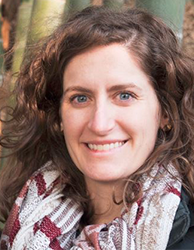 Dr Katrina Ortblad is an implementation scientist and Assistant Professor at the Fred Hutchinson Cancer Research Center, US. Her research seeks to improve equity in health access with differentiated models of HIV service delivery in high-prevalence settings. Her ongoing projects include a randomized trial that explores the use of HIV self-testing (HIVST) to decrease the number of pre-exposure prophylaxis (PrEP) clinic visits, a study to design and test a novel model of pharmacy-based PrEP delivery, and a study to design and test a peer PrEP referral and HIVST delivery model to increase PrEP uptake and continuation among young women (all in Kenya).
Dr Katrina Ortblad is an implementation scientist and Assistant Professor at the Fred Hutchinson Cancer Research Center, US. Her research seeks to improve equity in health access with differentiated models of HIV service delivery in high-prevalence settings. Her ongoing projects include a randomized trial that explores the use of HIV self-testing (HIVST) to decrease the number of pre-exposure prophylaxis (PrEP) clinic visits, a study to design and test a novel model of pharmacy-based PrEP delivery, and a study to design and test a peer PrEP referral and HIVST delivery model to increase PrEP uptake and continuation among young women (all in Kenya).
Sin How Lim, Malaysia
Bio pending.
Lead: Elvin Geng, United States
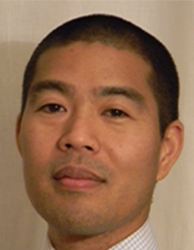 Dr Elvin Geng is an infectious disease physician who conducts epidemiological and implementation research to enhance the global public health response to HIV, in particular regarding engagement in HIV care. He directs the Center for Dissemination and Implementation in the Institute for Public Health at Washington University in St. Louis, US.
Dr Elvin Geng is an infectious disease physician who conducts epidemiological and implementation research to enhance the global public health response to HIV, in particular regarding engagement in HIV care. He directs the Center for Dissemination and Implementation in the Institute for Public Health at Washington University in St. Louis, US.
Chanda Mwamba, Zambia
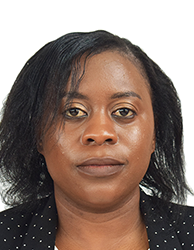 Chanda Mwamba (MPhil in transdisciplinary health and development studies) is a social science researcher. She obtained her BA from the University of Zambia and a PGD and MPhil from Stellenbosch University, South Africa. Her primary research work is focused on implementing and evaluating public health interventions using multi-method social science approaches. She has keen interest in explicating the profile of social science research approaches in public health interventions and in analysing the structural, systemic and operational processes underpinning public health policies and systems.
Chanda Mwamba (MPhil in transdisciplinary health and development studies) is a social science researcher. She obtained her BA from the University of Zambia and a PGD and MPhil from Stellenbosch University, South Africa. Her primary research work is focused on implementing and evaluating public health interventions using multi-method social science approaches. She has keen interest in explicating the profile of social science research approaches in public health interventions and in analysing the structural, systemic and operational processes underpinning public health policies and systems.
Ingrid Eshun-Wilson, United States
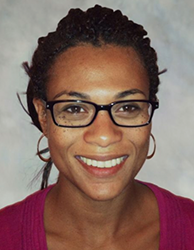 Ingrid Eshun-Wilson’s key research interests include investigating strategies to improve implementation of interventions addressing all steps of the HIV care cascade and synthesizing evidence in these areas for guideline development. This includes the design and analysis of pragmatic intervention trials, systematic reviews, mixed-methods research and discrete choice experiments for the evaluation of client preferences for HIV service delivery.
Ingrid Eshun-Wilson’s key research interests include investigating strategies to improve implementation of interventions addressing all steps of the HIV care cascade and synthesizing evidence in these areas for guideline development. This includes the design and analysis of pragmatic intervention trials, systematic reviews, mixed-methods research and discrete choice experiments for the evaluation of client preferences for HIV service delivery.
Rayner Tan, Singapore
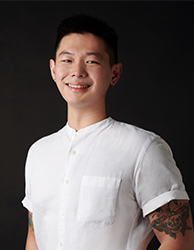 Rayner Kay Jin Tan is a postdoctoral fellow at the University of North Carolina Project-China, Guangzhou, China, and holds Visiting Research Fellow appointments at the National University of Singapore and the National Centre for Infectious Diseases, Singapore. He is a sociologist by training and employs approaches in social epidemiology, the social determinants of health and qualitative research to investigate the structural and contextual factors that drive the syndemics of HIV and other co-infections. He also serves on the executive committees of civil society organizations that provide services and advocate for the rights of people who use drugs and sex workers in Singapore.
Rayner Kay Jin Tan is a postdoctoral fellow at the University of North Carolina Project-China, Guangzhou, China, and holds Visiting Research Fellow appointments at the National University of Singapore and the National Centre for Infectious Diseases, Singapore. He is a sociologist by training and employs approaches in social epidemiology, the social determinants of health and qualitative research to investigate the structural and contextual factors that drive the syndemics of HIV and other co-infections. He also serves on the executive committees of civil society organizations that provide services and advocate for the rights of people who use drugs and sex workers in Singapore.
© Copyright: 2021 – 2024 IAS – the International AIDS Society
Email: info@ias2021.org
We may request cookies to be set on your device. We use cookies to let us know when you visit our websites, how you interact with us, to enrich your user experience, and to customize your relationship with our website.
Click on the different category headings to find out more. You can also change some of your preferences. Note that blocking some types of cookies may impact your experience on our websites and the services we are able to offer.
These cookies are strictly necessary to provide you with services available through our website and to use some of its features.
Because these cookies are strictly necessary to deliver the website, refuseing them will have impact how our site functions. You always can block or delete cookies by changing your browser settings and force blocking all cookies on this website. But this will always prompt you to accept/refuse cookies when revisiting our site.
We fully respect if you want to refuse cookies but to avoid asking you again and again kindly allow us to store a cookie for that. You are free to opt out any time or opt in for other cookies to get a better experience. If you refuse cookies we will remove all set cookies in our domain.
We provide you with a list of stored cookies on your computer in our domain so you can check what we stored. Due to security reasons we are not able to show or modify cookies from other domains. You can check these in your browser security settings.
We also use different external services like Google Webfonts, Google Maps, and external Video providers. Since these providers may collect personal data like your IP address we allow you to block them here. Please be aware that this might heavily reduce the functionality and appearance of our site. Changes will take effect once you reload the page.
Google Webfont Settings:
Google Map Settings:
Google reCaptcha Settings:
Vimeo and Youtube video embeds:
You can read about our cookies and privacy settings in detail on our Privacy Policy Page.
